SINGAPORE - Some conservationists here are calling for songbird owners and pet shops to obtain their birds sustainably, to ensure that the warblers' chirps, twitters and whistles will continue being heard in the wild.
To keep the songbird trade clean and sustainable, owners and pet shops should choose birds bred in captivity over those caught from the wild, and sustainably sourced birds should be labelled with a leg band or ring.
Retailers should also keep and show records of where they get their birds from.
These were some of the recommendations in a recently published paper that profiled 114 songbird owners between 2018 and 2019 to understand their bird-keeping hobbies and preferences, and learn about the importance of bird singing competitions.
The study, overseen by Dr Anuj Jain, bird trade coordinator at conservation group BirdLife International, was published last month in the journal Bird Conservation International.
The pastime of keeping caged songbirds and putting them up in bird singing competitions is popular in South-east Asia, including Singapore.
The keeping of pet birds here is believed to have started in the 1950s.
For decades, songbird owners have spent their weekday mornings and weekends putting up their caged pets at designated hanging spots and coffee shops, and chatting with fellow hobbyists while the birds try to out-chirp and out-trill one another.
Although monthly competitions at Kebun Baru Birdsinging Club have been suspended since the Covid-19 pandemic started, droves of hobbyists turn up at its field in Ang Mo Kio every morning and on weekends to train their songbirds.
One of them is Mr William Chua, 72, a school bus driver who has been training his zebra doves every morning at the field for more than 25 years, taking a break only during the Chinese New Year holidays.
At one stage, he was taking as many as 10 birds to the field each day. He also helped to train his friends' pets.
"I like keeping zebra doves because when you hear their voice, it feels like you are in the countryside."

But the demand for songbirds has been putting wild birds in peril.
For instance, the white-rumped shama - a largely blue bird with a long feathered tail - is becoming a rarer sight in the wild in South-east Asia.
This songbird was one of the four most popular species owned by the 114 hobbyists surveyed in the study.
The white-rumped shama is now classified as a nationally threatened species in Singapore, along with the oriental magpie-robin.
"We are not dealing with a lot of threatened songbirds in the trade here, unlike (in) Indonesia, but some of them are declining locally in Singapore," said Dr Jain.
Even the hill mynah and mata puteh are at risk. Demand for these songbirds needs to fall to ensure they are conserved, he added.
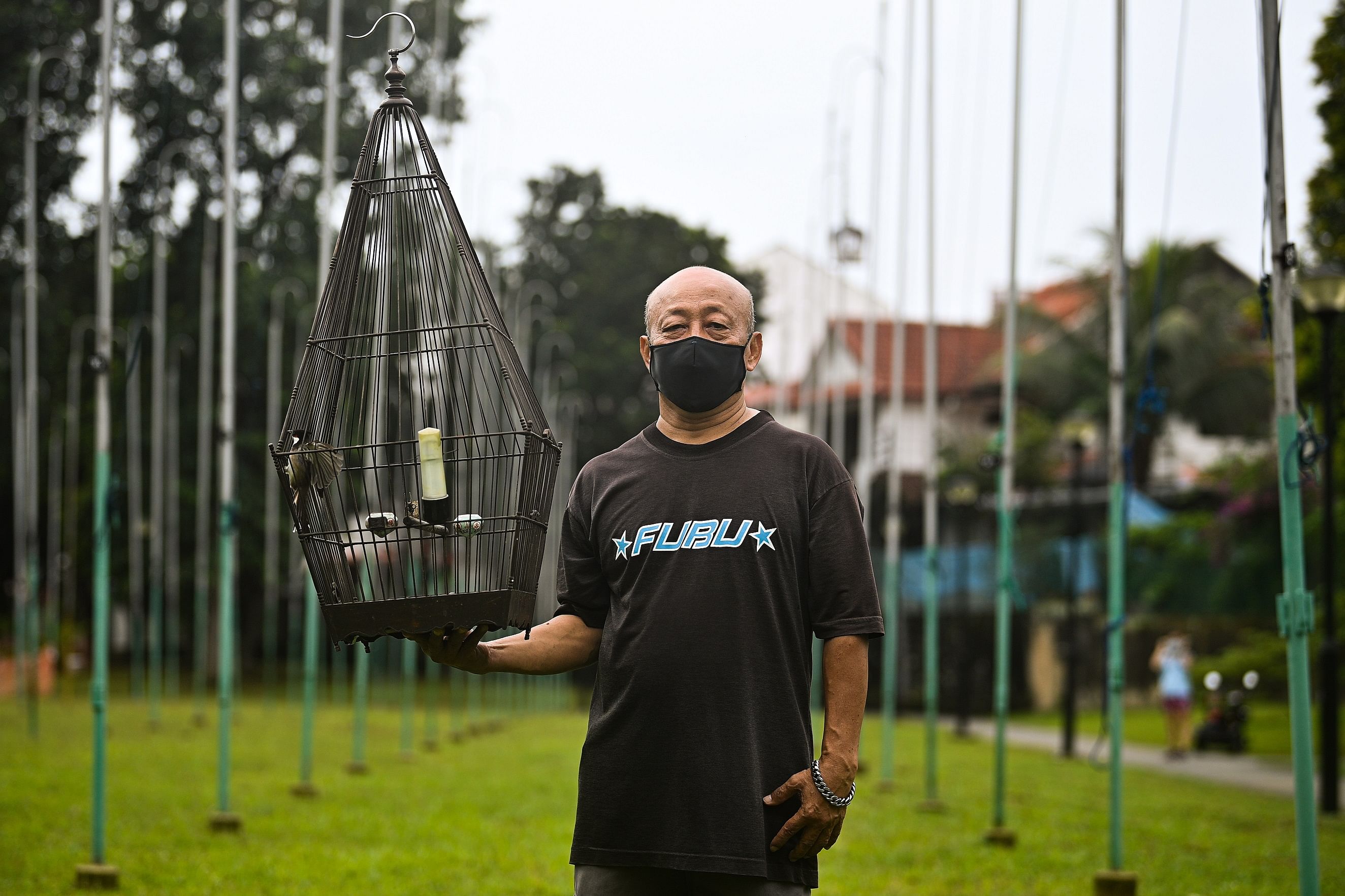
Some of the hobbyists also shed light on illicit activities happening in the bird trade here, which includes poaching of local birds, breeding and some bird shops regularly bringing in shipments of wild-caught birds of unknown legality.
Animal Concerns Research and Education Society (Acres) was alerted to 75 cases of bird poaching activities between 2019 and 2021, said its co-chief executive Anbarasi Boopal.
Last month, Acres was alerted to a bird trap set up outside a Housing Board unit with a fruit bait. Poaching by homeowners has been on the rise, Ms Anbarasi said.

With a few exceptions, it is illegal to trap or take any wild birds in Singapore.
But rock pigeons, spotted doves and the oriental magpie-robin are common victims of poaching, said Ms Anbarasi.
"There is a pressing need to improve regulations related to purchase and ownership of birds, home-breeding and online sales of birds in Singapore," she added.
Anyone who trades birds must first obtain a permit from the authorities.
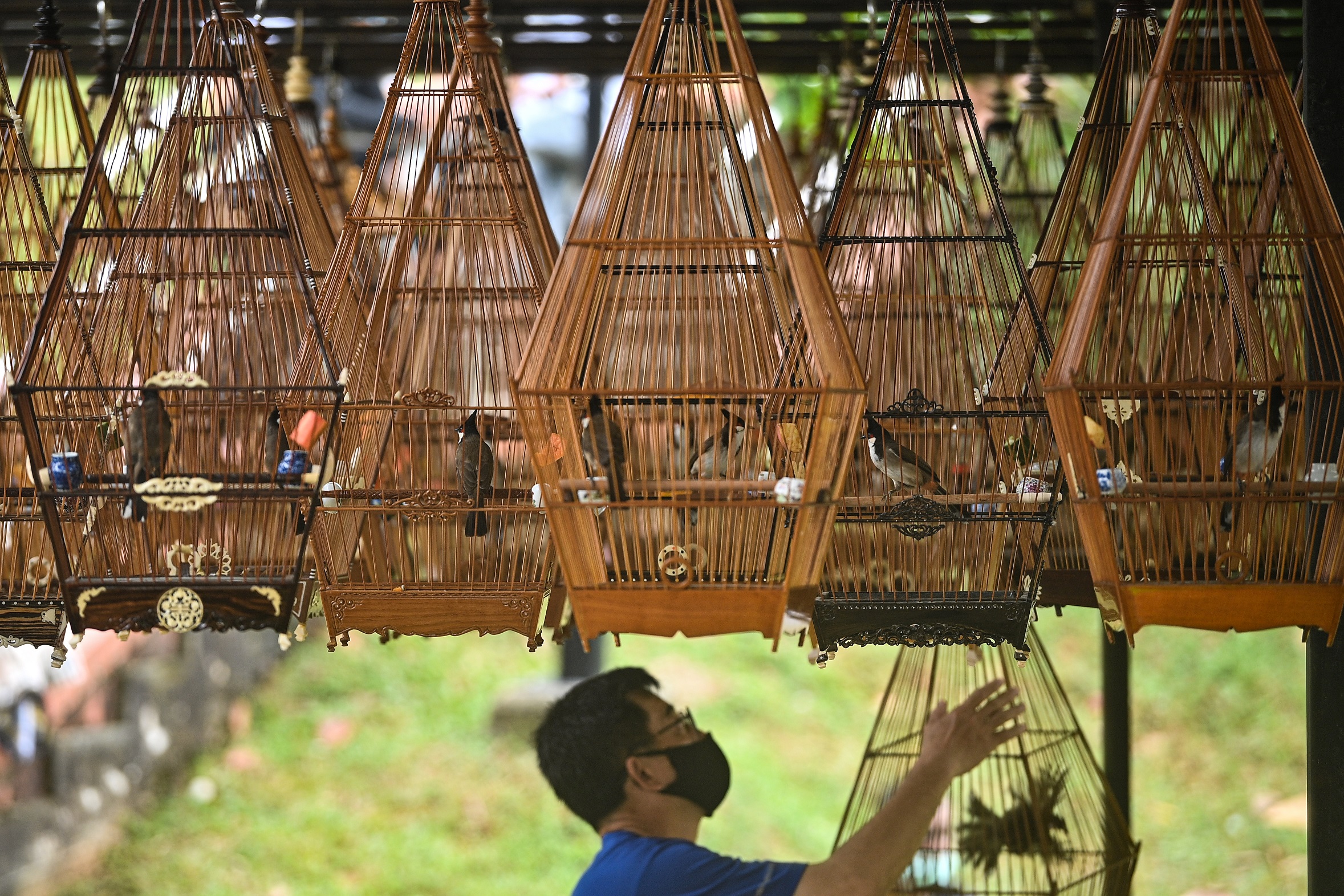
A couple of songbird hobbyists that The Straits Times spoke to also said they have friends who privately breed birds such as the popular zebra dove - which they sell or give away.
Among the 114 hobbyists surveyed in the recent paper, only 17 per cent of them preferred wild-caught songbirds over captive-bred ones.
However, the paper's authors noted that some hobbyists may not have been forthcoming or may have given a desirable answer since preference for the source of birds is a sensitive question.
Hobbyists may also be reluctant to press for transparency.
Mr Chua, for instance, told ST: "The pet shops sell birds, and I just buy them. How can you ask how they got the bird? It's so rude."
Between 2019 and 2021, National Parks Board's (NParks) Animal and Veterinary Service conducted around 2,000 inspections on pet shops and farms, and took action on 110 cases for non-compliance with licensing conditions.
Between 2011 and 2020, 44 bird smuggling cases were intercepted, resulting in the seizure of 2,055 birds, said NParks group director of wildlife management Adrian Loo.
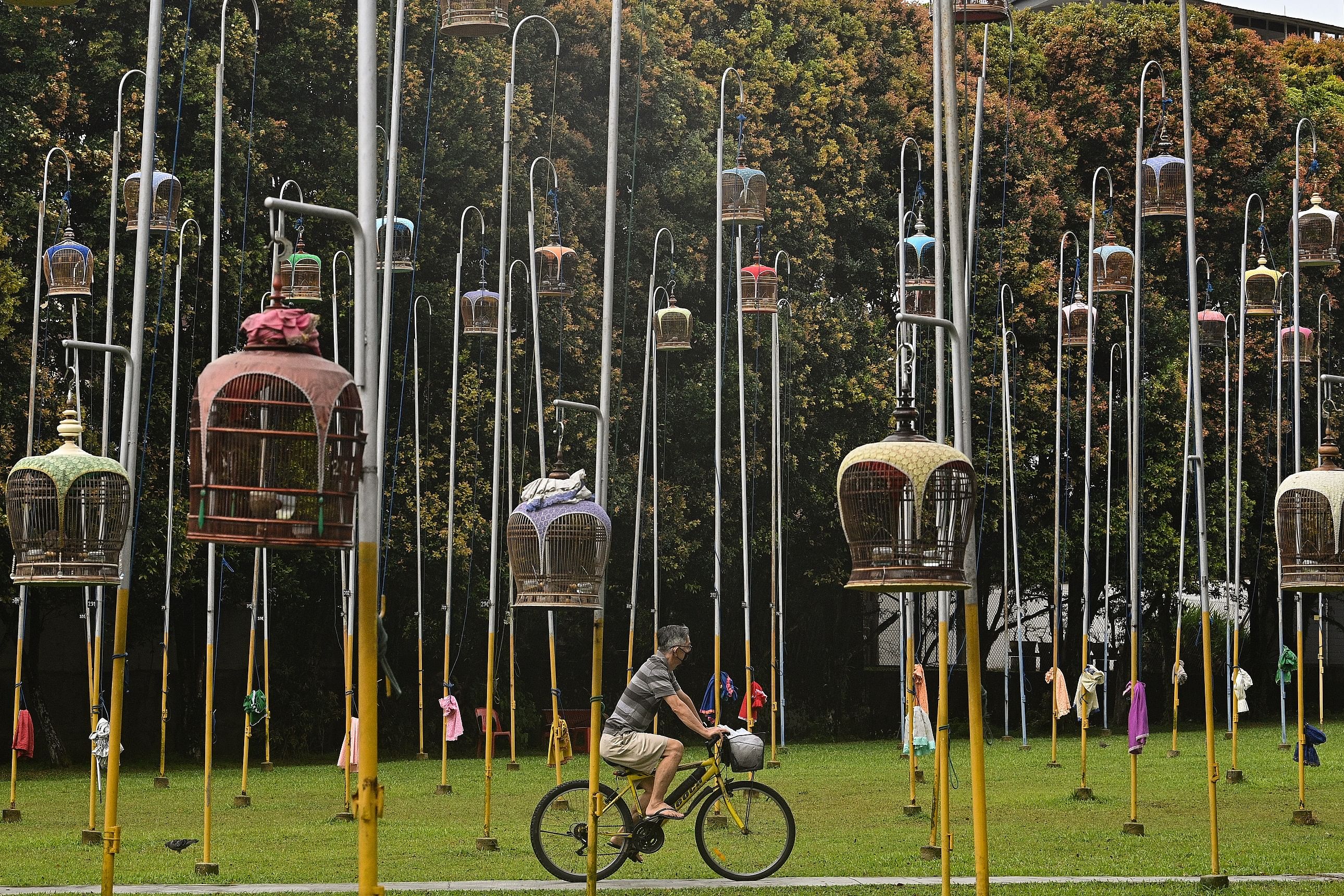
Dr Jessica Lee, assistant vice-president of conservation and research at Mandai Nature and co-author of the paper, said that pet shops - where most of the songbirds are obtained - should be further regulated to ensure that the supply chain and trade is clean.
Proper documentation and record-keeping is lacking, she noted. "Pet shops need to start putting more effort into their supply chain."
"Paperwork will not address 100 per cent the illegal capture of birds in the wild, but it helps to track bird movement in the markets, especially for native species that are protected in Singapore."
A sustainable songbird trading system is one where birds are obtained from captive-bred sources kept under internationally accepted standards, or where birds are properly harvested from the wild via strict adherence to quota.
Ideally, conservationists said, hobbyists should pick captive-bred and domesticated species such as canaries and finches, over the popular songbirds now.
Canaries have been captive bred for hundreds of years, and there is "massive domestic stock that can feed demand", Dr Lee explained.
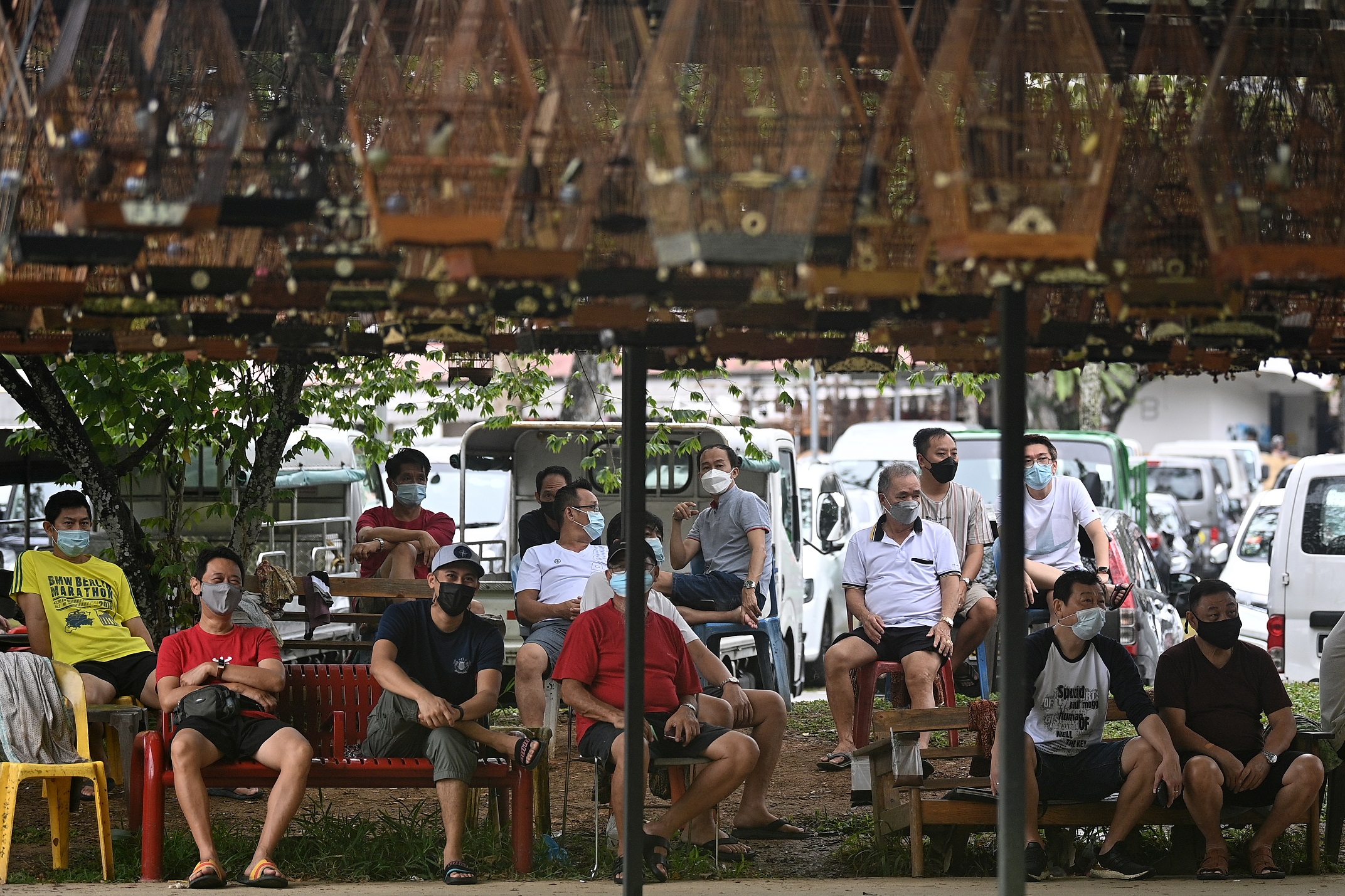
But Kebun Baru Birdsinging Club's co-founder Robin Chua said switching to canaries and finches may be a long shot.
"Serious avian hobbyists do not keep canaries. Canaries are not Asian. Our hobbyists are more versed with Asian or South-east Asian birds, and there are no competitions for canaries," he said.
To this, the paper's lead author Chiok Wen Xuan, a wildlife ecologist and researcher, countered: "There should be more support for sustainable competitions involving captive-bred species, or organise more competitions for finches and canaries."
Dr Jain added: "Based on these findings, one behaviour change intervention could be to improve the social acceptance of captive-bred songbirds. The practice could be mandated by having a ringing system (where) all birds participating in songbird competitions have closed rings."
Commenting on the study, NPark's Dr Loo said: "We will work with the authors on information from the research that can contribute to the design of evidence-based conservation interventions for the songbird trade in Singapore."
Some common songbirds in Singapore
Swinhoe's white-eye, or mata puteh

- One of the few mata puteh species that is popular as caged birds here
- Has a thin, high-pitched warbling call, and small flocks often give away their presence with their distinctive calls
- A pet shop survey in 2015 by wildlife trade monitoring network Traffic revealed that the white-eyes comprised 46 per cent of the birds found in the shops
White-rumped shama, or longtail

- A thrush-like bird with a long, feathered tail
- Has a rich, resonant song, with bubbly phrases, loud whistles and flute like notes
- An accomplished mimic, the bird is known to add sounds made by other birds to its repertoire
Zebra dove, or merbuk
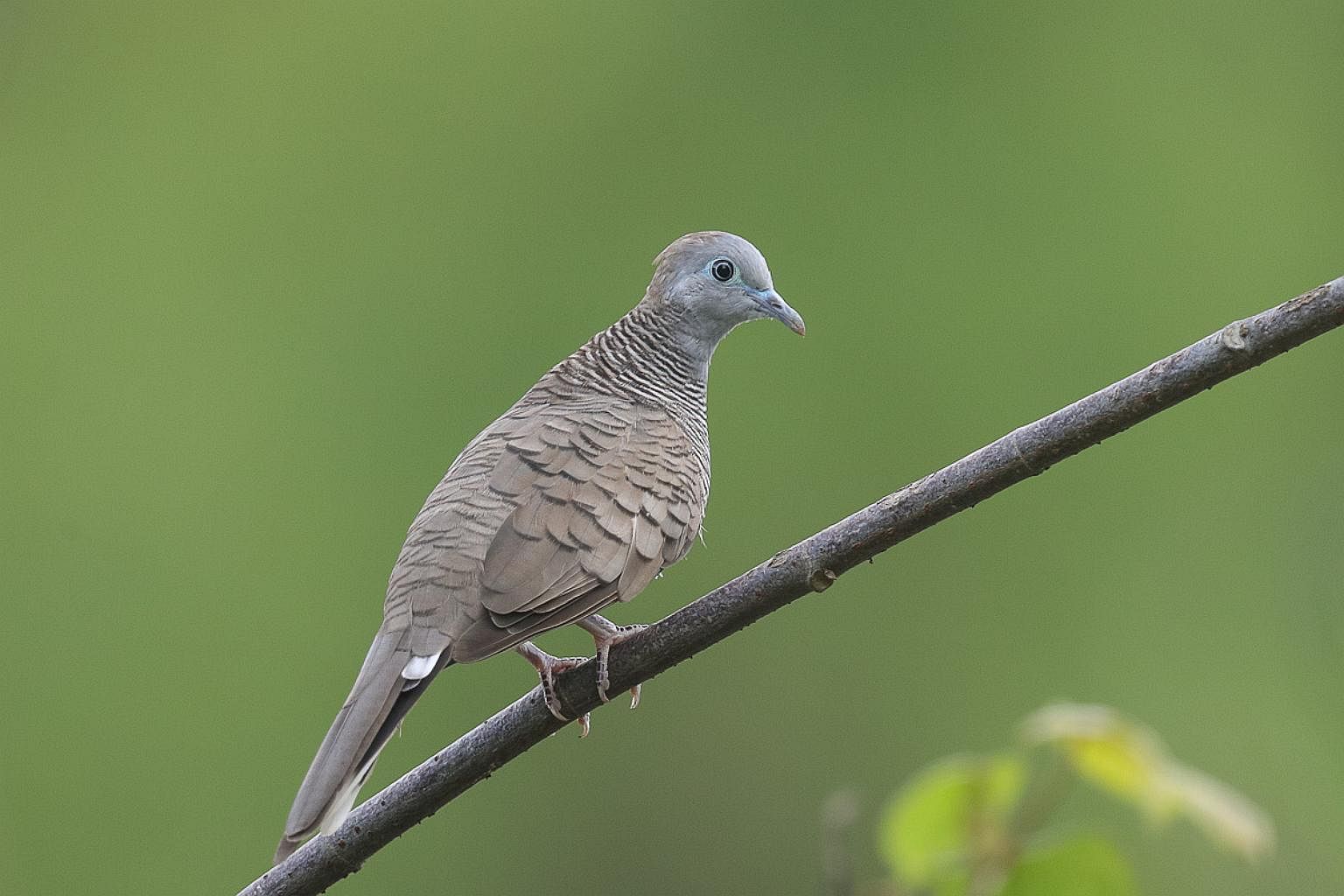
- A native and common urban dove known for its soothing, low-pitched coo
Red-whiskered bulbul, or jambul

- Not native to Singapore, but escaped pets have led to some populations here
- Its call comprises rich warbled phrases, high-pitched pips, a long buzzy note, and bright tone
- The bird is featured on the old Singapore $5 notes (bird series)
Source: eBird, Singapore Birds Project


